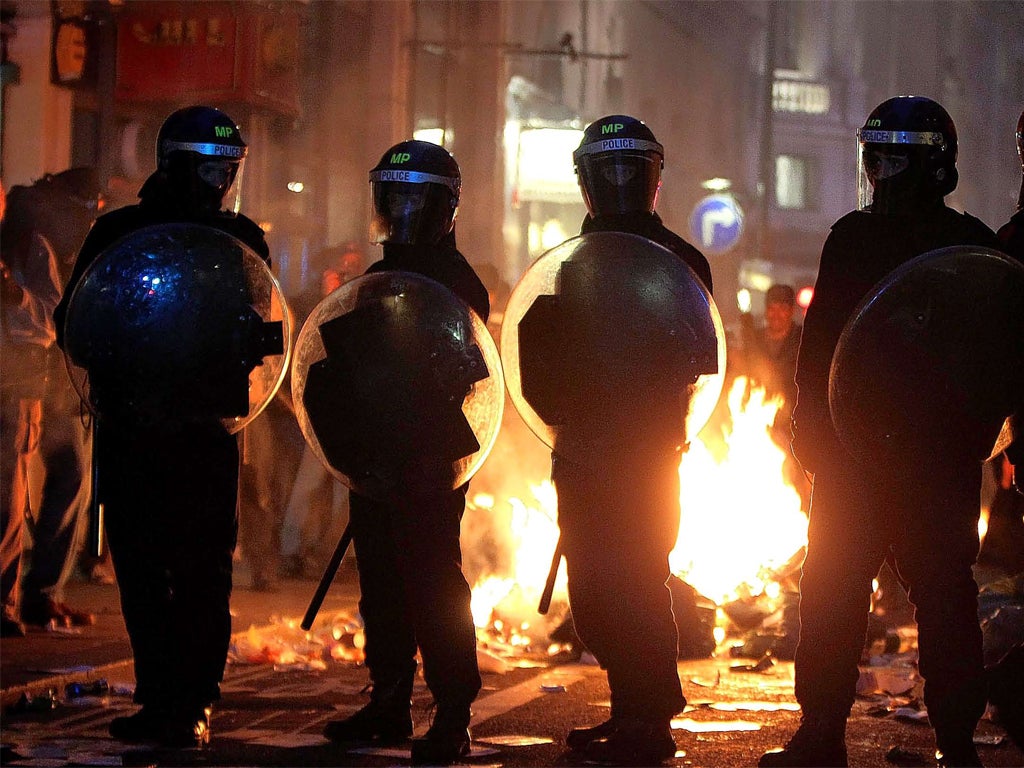Five years on from the 2011 riots, it would be foolish to think our cities are safe from post-referendum disorder
Riots are unpredictable but the same fractures that were largely ignored in the aftermath of the 2011 riots have been exposed again since the vote in favour of Brexit

Your support helps us to tell the story
From reproductive rights to climate change to Big Tech, The Independent is on the ground when the story is developing. Whether it's investigating the financials of Elon Musk's pro-Trump PAC or producing our latest documentary, 'The A Word', which shines a light on the American women fighting for reproductive rights, we know how important it is to parse out the facts from the messaging.
At such a critical moment in US history, we need reporters on the ground. Your donation allows us to keep sending journalists to speak to both sides of the story.
The Independent is trusted by Americans across the entire political spectrum. And unlike many other quality news outlets, we choose not to lock Americans out of our reporting and analysis with paywalls. We believe quality journalism should be available to everyone, paid for by those who can afford it.
Your support makes all the difference.August 2011 saw the most serious rioting in England since at least the early 1980s, and perhaps in the whole post-war period. We are fast approaching their fifth anniversary, and this ought to make us stand back and take stock.
Were the riots a one off? Were they just a brief, opportunistic outbreak of violence, looting and criminal damage – “criminality, pure and simple” as the then Prime Minister David Cameron put it? Or were they indicative of something deeper, something more serious – something that, with the right conditions, could resurge again?
In the weeks since the EU referendum result, we have become used to hearing that we live in a “divided society”. Divided between Leavers and Remainers, but also by something much more fundamental; a fracture in our society separating the reasonably affluent from the growing number who are being left behind, and who feel that their interests are ignored by the political classes.
Without wishing to draw too strong a parallel, it is undeniably the case that this fracture was also one of the factors underpinning the 2011 riots. Feeling “left behind”, disregarded and cut off from the mainstream, with few and perhaps diminishing opportunities, was precisely how those involved in the rioting said they felt.
In a joint study between The Guardian and LSE conducted immediately after the riots, hundreds were spoken to that took part in the disorder. What they talked of was a high level of anger and frustration; anger at their treatment by the police and other authorities; anger at the closure of local public services and the withdrawal of the Education Maintenance Allowance, which helped keep young people from poor backgrounds in education; and, anger at the behaviour of bankers, politicians and others in the British elite.
They felt they lived in a world of moral double standards. Routinely stopped and searched – often for little or no reason – they compared their minutely-controlled and supervised lives with those of the rich and the powerful who, despite their often egregious misconduct, seemed immune from retribution.
Where Brexit has focused some attention on the fault lines in our society, these same fractures went largely ignored in the aftermath of the riots. Although we have managed five years without further outbreaks of disorder on our streets, we should be anything but complacent that such calm will continue. The signs are far from promising – not least because so many public policy indicators have been going in the wrong direction.
Child and working age poverty have increased, youth service provision has continued to shrink, investment in area regeneration and local renewal has declined substantially, real spending on early education, childcare and Sure Start services has significantly been reduced, and the poorest groups have been affected most by changes to direct taxes, benefits and tax credits.
In short, it would be hard to argue that the lives and the prospects of the alienated young people who took to the streets in August 2011 have in any way improved.
Of all the things that were the focus of young people’s anger, the only potentially positive development resulted from Theresa May’s intervention as Home Secretary to try to reform police use of stop and search powers.
Long a source of disquiet, especially in minority communities, official figures recorded a 40 per cent drop in the use of the tactic between 2014 and 2015 as a consequence of May’s intervention. Even here, however, the news is by no means entirely positive; there remains plentiful evidence that stop and search continues to be used too frequently, too regularly on the flimsiest of evidence, and not always in the professional manner that is expected.
By their nature, riots are unpredictable things. Thankfully, they are also rare. But it would be a foolish observer who assumed that our cities are safe this summer.
Tim Newburn is professor of criminology and social policy at the London School of Economics
Join our commenting forum
Join thought-provoking conversations, follow other Independent readers and see their replies
Comments